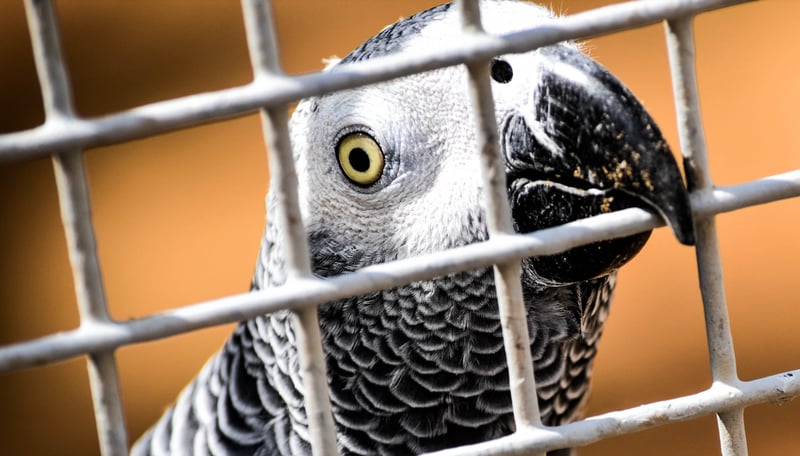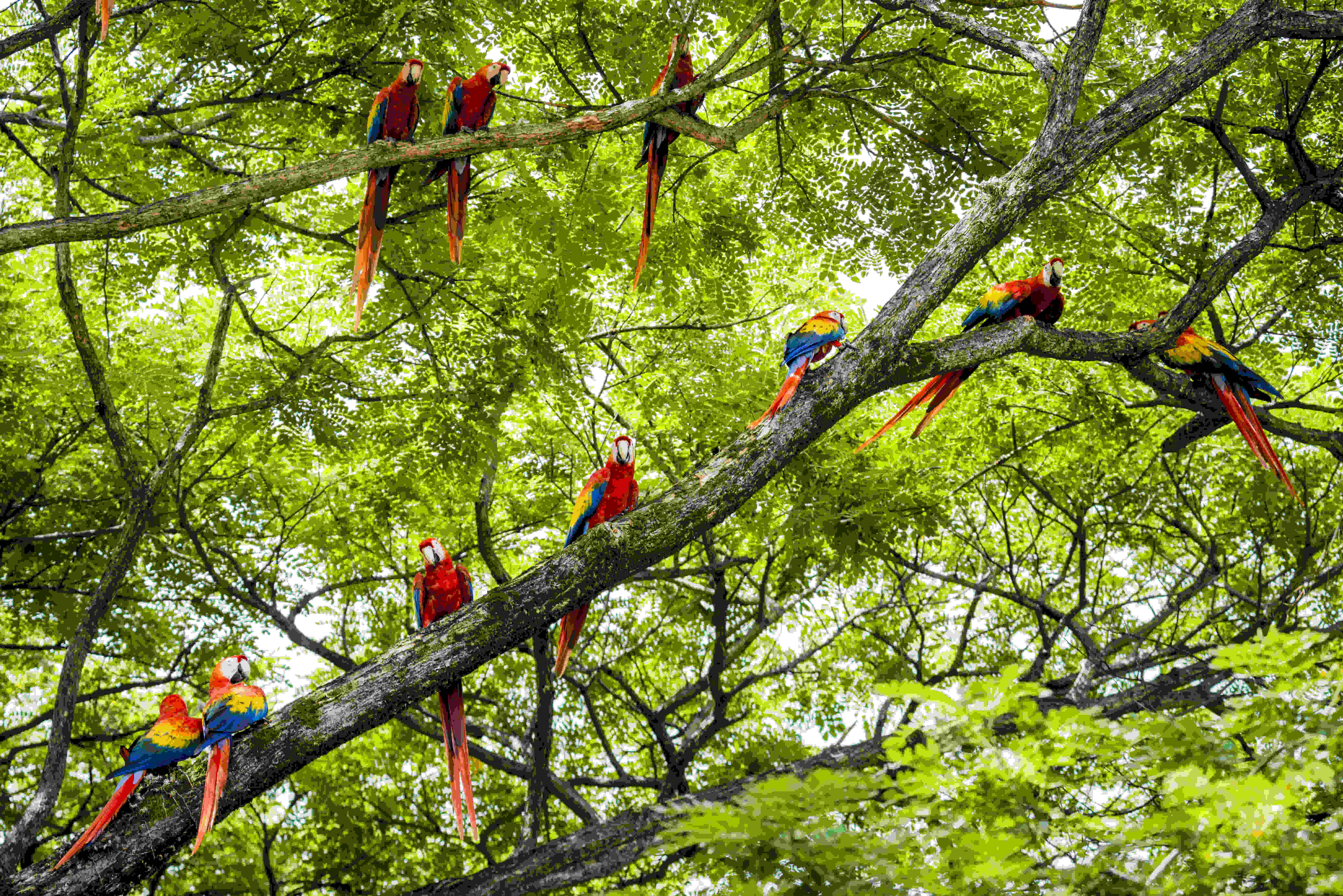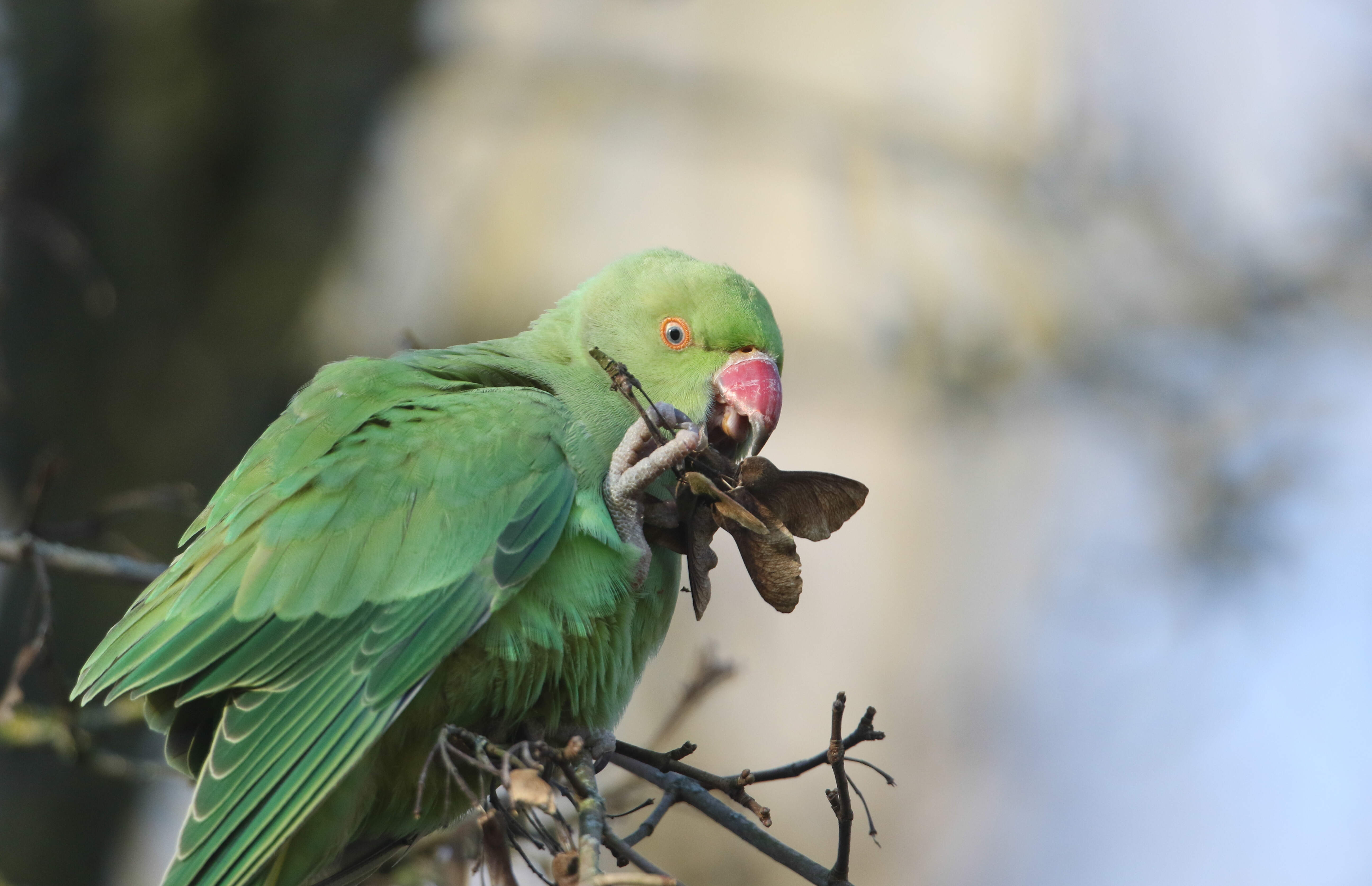
Why Parrots Aren’t Pets: The Truth Behind These Intelligent Birds and Their Wild Needs
Blog
Parrots are wild animals who should never be purchased from a pet store.
Parrots are some of the most beautiful and intelligent animals on the planet, with vibrant feathers and impressive vocal abilities. But what many people don't realize is that these birds are wild animals with complex needs that simply cannot be met in captivity. They are not the “easy,” ideal companion animals that retail stores make them out to be. The reality is that parrots belong in the wild, not in cages. Here’s why:
1. Parrots Are Highly Social and Need Companionship
In the wild, parrot species live in large flocks, relying on each other for safety, bonding, and communication. In captivity, parrots often become isolated, which can lead to stress, anxiety, and behavioral problems, including high-pitched screaming and feather-plucking. Unlike many other companion animals, parrots cannot thrive in a solitary environment. They need the company of their own kind or, at the very least, constant interaction with their human caregivers.

2. Parrots Are Incredibly Intelligent
Parrots are among the most intelligent birds on the planet. Some species, like the African Grey Parrot, have demonstrated the ability to learn hundreds of words and understand concepts like shapes, colors, and numbers. Unfortunately, when kept captive, this intelligence often leads to boredom and frustration. Without enough stimulation, parrots may engage in destructive behaviors like feather plucking or incessant screeching.
3. Parrots Live for Decades—Not Just a Few Years
Many people don’t realize that parrots can live for 50 years or more—some even reach 80! This long lifespan means that adopting a parrot is a lifelong commitment, one that many people are not prepared for. They require ongoing care, attention, and enrichment throughout their entire lives, and a plan for care if their human guardian dies. The responsibility that comes with keeping a parrot on your own is huge, and most households simply aren’t set up to meet their needs for decades.
4. Parrots Need Room to Fly
Parrots are natural flyers and need ample space to spread their wings. A small cage or even a spacious living room just isn’t enough to satisfy their instincts. In the wild, parrots can fly for miles every day in search of food, mates, and shelter. Keeping them in confined spaces not only restricts their movement but can also lead to physical health issues, such as obesity and weakened muscles. It’s essential that parrots have the opportunity to fly and explore in an environment that mimics their natural habitat.
5. Parrots Have Specific Diets and Health Needs
Parrots are not simple eaters. Their diet in the wild includes a wide range of fruits, seeds, nuts, flowers, and even insects. They rely on a balanced and varied diet to maintain their health. In captivity, many pet parrots are fed a limited diet of seeds or processed foods (such as pellets), which can lead to malnutrition, obesity, and other health problems. They also require frequent veterinary care, including regular checkups, nail trims, and beak and feather maintenance. However, very few vets are equipped to handle wild animals like parrots, and “exotic vets” who specialize in bird care can be expensive.

6. Parrots Belong in Their Wild Homes
Parrots are demanding animals who require a lot of time, energy, and resources. Their needs are complex, and their behavior can be unpredictable. A parrot’s call is loud and can be disruptive, particularly in apartment settings or places where noise is an issue. Additionally, their large beaks can be dangerous if they feel threatened. It's important to remember that parrots are wild animals, not companion animals.
How You Can Help Parrots
When parrots are sold and kept as companion animals, they may also be subjected to practices that are harmful to their well-being, such as having their wings clipped or being kept in isolation for long periods. These practices are not only unethical but also contribute to the decline of parrot populations in the wild.
Parrots deserve to live free, where they can fly, socialize, and live out their lives as nature intended. Take action today by signing our pledge to never purchase a parrot so we can let you know when there is legislation in your area protecting these incredible animals!